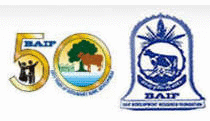Project funded by UNDP, initiated in Kishanganj and Shahbad block of Baran district. The project is focused upon social mobilization & women’s empowerment through Self Help Groups for addressing food security, Water, Fuel & Fodder needs along with improvement in the health and educational status of WOMEN.
The project is being operated over a period of 3 years (September 2004 to December 2007) and Jana- Utthan approach is being used for taking up different interventions.
The Jana- Utthan (women uplift through their active involvement) approach has developed from experience gained over the first three years of the EU project. This approach seeks to identify how to engage effectively with communities, how to select a range of interventions to meet needs of an individual family and how to build sustainability into activities beyond the course of the project.
The origin of this approach lies in the realization, based on practical experience, that the needs of the poor rural families are diverse, are influenced by wider community relations and cannot be effectively addressed through a standardized ‘model’ or a ‘package of interventions’. Experiences also showed that the indigent/stakeholders are not a homogeneous economic or social category and that differentiation is necessary to best address the constraints that they face. These constraints include quality of life issues as well as economic constraints and, in the village environment, this means addressing health and social inequity issues along with economic improvement.
The Jana- Utthan approach seeks to work in partnership with the poorest, recognizing both their family and local community environments. Families select interventions addressing livelihood, health and quality of life issues that are most relevant to their individual needs. Interventions are managed and financed through People’s Organizations formed by the participants. Over a period of time the People’s Organizations take over the support and facilitation role initially provided by the project. With the success of the savings programmes and repayment of initial loans, the programme aims to become economically self- sufficient.
The Livelihood systems component:
The livelihood systems component seeks to strengthen the existing family assets and create new ones to bring the family above poverty line. Interventions include land and livestock based programmes and small-scale micro enterprises in the rural non- farm sector. For each participant family a micro level plan is developed to bridge the gap between existing income and the poverty line. The current resource base of the family together with members’ skills and aspirations are taken into consideration to identify and finalize suitable interventions.
Activities proposed in the project are Community Mobilization, Community / Area focused interventions, Family (Household) focused economic interventions and Women focused interventions.
Main problems of Target area Small and fragmented land holdings with family heads, Erratic rainfall, Recurring droughts, Non- availability of improved agricultural implements & mechanized farming, Inadequate irrigation facilities, Non- adoption of practice of crop rotation, Illiteracy and Low awareness level and Low livestock productivity.
Women's status : Drudgery - at household & in field work, Low level of awareness and literacy, Poor decision making and bargaining power, Women's representation in social & political bodies like Panchayats is rare, more forced than voluntary and they become office bearers of a body/organization only when the posts are reserved by law.
Health Status of the area are Poor household hygiene & Poor quality drinking water, Malnourished adults and children, High birth rate (non-adoption of family planning measures), Non-availability and poor access to medical care facilities and Prevalence of major diseases, like T.B., Leucorrhea.
PROJECT OBJECTIVES
· Strengthening the economic base of women by ensuring access to productive resources and sustainable management of these resources.
· Empowerment of women through social mobilization & demonstration approach.
· Strengthen linkages of women's groups with other agencies
· State - Community - NGO partnership for policy advocacy.
Highlights
· SHG members are adopting Wadi programme.(35 members have established their wadi after exposure to EU project area.)
· Group members are taking bank loan for the purchase of Sirohi Goats (153 goat and 43 breeding Bucks) as an IGA.
· Group members are now cultivating cash crops i.e. Vegetables
· Awareness level has been increased and animals have been insured (128 Goat and 2 Cow till date.)
· 42 SHGs have received Revolving funds and it is being utilized by 400 members for seed purchase of Bajra, Maize, Moth, Moong, Til & fertilizer.





